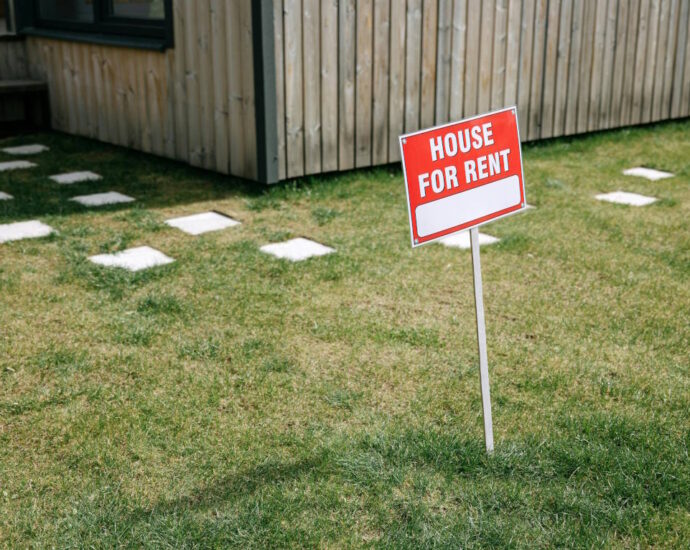In reading about the FIRE (Financial Independence, Retire Early) movement, I’ve noticed a lot of bloggers have mentioned owning rental homes or business properties as a way of ensuring ongoing, consistent income. While this may be the right answer for some, is it right for you?
This isn’t just a money decision
Before I go into some of the advantages and disadvantages of owning a rental property, carefully consider whether you have the right personality to manage tenants. While stock or index fund investments can change on the whim of pretty much any news announcement, they don’t call you at 3am to tell you the toilet is leaking. People with a large number of rentals may have a team in place to handle these situations but when you start acquiring properties, you will probably be the point person. Are you willing to do the work, whether it’s vetting tenants or learning about simple home fixes to reduce the costs of having a handyman on call?
Advantages of being a landlord
Some of the advantages of being a landlord include:
Monthly income. While this may seem obvious, having a rent payment arrive every month can help tide you over when other investments are down or you’re between jobs. This payment should cover the expenses with the rental (think mortgage, taxes, and insurance with an amount going into a maintenance fund), and eventually add to your cash flow.
Tax advantages. The IRS allows you to deduct some expenses for rental property, including interest you pay on the mortgage, property taxes and insurance, and maintenance costs.
Property appreciation. If you chose a property in the right neighborhood, you may experience an appreciation of its value over the time you’re the owner. In many areas of the US today, this would be the case, as home prices in general have risen substantially since Covid.
Diversification. If you own a stock-heavy portfolio, adding real estate to your portfolio can provide needed diversification if the markets drop. The monthly income can also give you a respite in low markets from having to sell your stocks.
Disadvantages of being a landlord
While it’s fun to focus on the monthly income, there are some reasons you will want to think twice before becoming a landlord.
In one word, tenants. I remember talking to a landlord years ago who said that if it wasn’t for the tenants this would be a great profession. The vast majority of people who rent from you will treat your property well, pay their bills on time, and be tenants you would like to have for life. But no matter how well you screen, you will end up with several who won’t pay their rent on time or who will damage the property.
Expected costs. In my state, you receive a homestead exemption for your primary residence, which amounts to a savings of around 40% of your tax bill. If you own a rental house, you will be paying more in taxes. Before purchasing your first rental, you should also understand the level of insurance you will need to provide and its cost. Plus, you will need to budget a certain amount for known maintenance, like repainting between tenants or carpet replacement.
Unexpected expenses. I’ve noticed this with owning a car for each member of my family: it seems like there’s constantly some issue with one of the cars. As you own more homes, you will find the same. Maybe a tree limb falls on your rental during a storm, or the new tenants accidentally hit the side of the garage when backing in. Whatever the case, you should also set aside money for unforeseen accidents.
Vacancies. Making money when your rentals are full might seem like printing cash. But what happens if a couple of your homes are vacant for months at a time? Or what would happen if a Covid shutdown recurred and your beach condo sat empty for a summer? Landlords will strive to make their good tenants happy, knowing in the long run that’s cheaper than having the rental sit empty.
Neighborhood decline. If the neighborhood declines or the local market takes a hit, you could end up owning a depreciating asset. Not only would you need to reduce rent to mirror the decline, but your property value could also be lower than when you purchased.
If you jump, jump into shallow waters
Like with other investments, you may choose to try out being a landlord. This is much easier if you have a property you’ve paid off or paid down a substantial portion of the mortgage. Many people have chosen to try renting their first home after they’ve moved, or perhaps with a bequeathed home after a relative dies. Others team up with a friend or business partner to give renting a shot.
Whatever you decide, you should first talk with successful landlords. What do they wish they had known when they first started out? What are the percentages they use to evaluate homes? How have they secured financing? Would they go into this business today knowing what they know now? And think carefully about your willingness to be a hands-on manager. While owning rental properties can be a way to wealth, they may also turn into a nightmare if you aren’t prepared for the challenge.
Photo by Ivan Samkov
